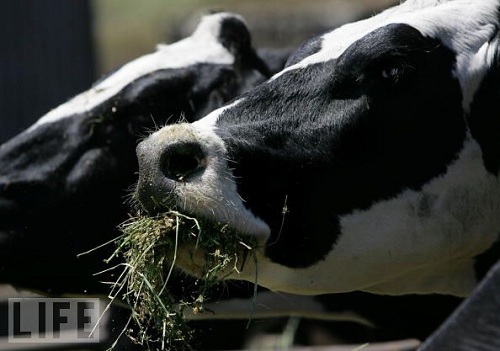EU fears Canadian beef imports

The Western Producer | Feb. 23rd, 2012
EU fears Canadian beef imports
Unable to compete | European farmers say there are many factors that give Canada a competitive advantage, including lower feed costs
by Barry Wilson
BRUSSELS, Belgium — At the core of Europe’s resistance to allowing greater access for Canadian beef is a deep-seated farmer conviction that they cannot compete because of unfair Canadian advantages.
“Every farmer here feels deeply that they are not competitive with North American and Canadian production,” said Pekko Pesonen, secretary general of COPA, the European Union’s general farm organization.
“We feel the competitive edge falls to Canadian farmers.”
European agriculture’s resistance to greater Canadian grain and meat imports is one of the unresolved issues in Canada-European Union free trade talks as they head into their third year.
Canadian dairy industry resistance to opening the domestic market to more European dairy products is another.
Pesonen said he is not criticizing his members as less astute producers than their North American counterparts. Instead, he argues that a combination of domestic EU policy restrictions and Canadian natural advantages give Canadian product the upper hand:
– Canadian producers have access to abundant domestic feed while European livestock producers must import significant amounts of feed, he said. It means European feed costs generally are higher and supplies less secure and predictable.
– The European animal traceability requirement is more stringent and costly for farmers than Canada’s.
– European consumer rejection of hormone-treated beef means Canadian producers have an advantage.
– European environmental rules add costs that Canadian producers do not have, particularly since the EU continues to support tough Kyoto Protocol demands for greenhouse gas reductions while Canada has rejected Kyoto.
– Consumer demands in Europe for rules guaranteeing on-farm animal welfare practices far exceed what is required in North America.
He said Canadian farming practices are often closer to European practices and rules than other countries, but both have their own offensive and defensive positions in the Canada-EU trade talks that reflect their own interests.
European dairy farmers, who once had a version of their own supply management system and supported Canada’s defence of its system, now are forced to face more market competition, reduced government support and an end to their already weakened production quota system by 2015.
Given their new exposure to market forces, Pesonen said European dairy farmers understand processor demands that any trade deal give them better access to the Canadian market.
“Farmers and processors are quite connected now and they realize that more export of processed products like cheese opens up increased demand for their milk,” he said.





